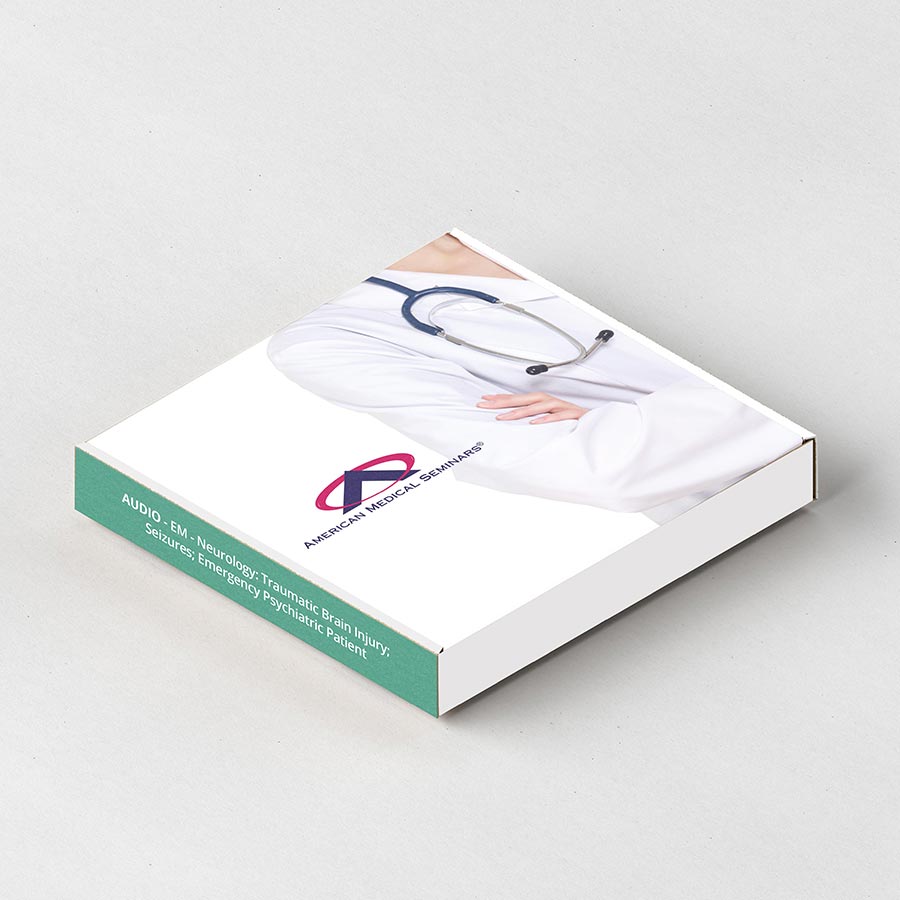Product Description
Expiration Date: July 1, 2019
Title: Emergency Medicine – Neurology: Traumatic Brain Injury; Seizures; Emergency Psychiatric Patient
Faculty: Kenneth H. Butler, D.O., F.A.C.E.P., F.A.A.E.M.; Sean M. Fox, M.D., F.A.C.E.P., F.A.A.P.; and Joel Kravitz, M.D., F.A.C.E.P., F.R.C.P.S.C.
Original Release Date: July 1, 2016 Review Date: July 1, 2017 Expiration Date: July 1, 2019
TOPIC 1: Traumatic Brain Injury.
Upon completion of this session, the participant should be able to: COMP
- Develop an approach to assessing the head injured patient where you can forget about the GCS scoring system.
- Identify the TBI clinical presentation where “The eyes have it”.
- Determine when TBI necessitates a “formal” RSI intubation.
TOPIC 2: Seizures: That’s Not a Dance Move.
Seizures may present in rather subtle and dramatic fashions. The subtle seizure is often a diagnostic challenge while the dramatic one may present management challenges. This course will focus on the most state of the art concepts related to the evaluation and management of seizures in the Emergency Department today. Upon completion of this session, using the recent literature and national organizations recommendations, the participant should be able to:
- Describe the most appropriate evaluation for a patient with a new onset seizure in the Emergency Department.
- List useful methods therapies and management strategies for patients with simple seizures.
- Describe the appropriate management of a patient with status epilepticus.
- Expect and account for the potential complications of the specific therapies for status epilepticus.
TOPIC 3: Management of the Emergency Psychiatric Patient.
Upon completion of this session, the participant should be able to: GL, COMP
- Recognize the early signs of agitation and employ strategies to resolve them.
- Select appropriate agents for chemical restraint based on available evidence.
- Using ACEP guidelines as a framework, develop a plan for the medical clearance of a psychiatric patient.
- The receipt for any incentive-associated purchase will designate the value of the gift card separately from the cost of the learning activity.
- This incentive may have implications on your tax reporting obligations. Any reimbursed amount must be declared as personal income for tax purposes.


